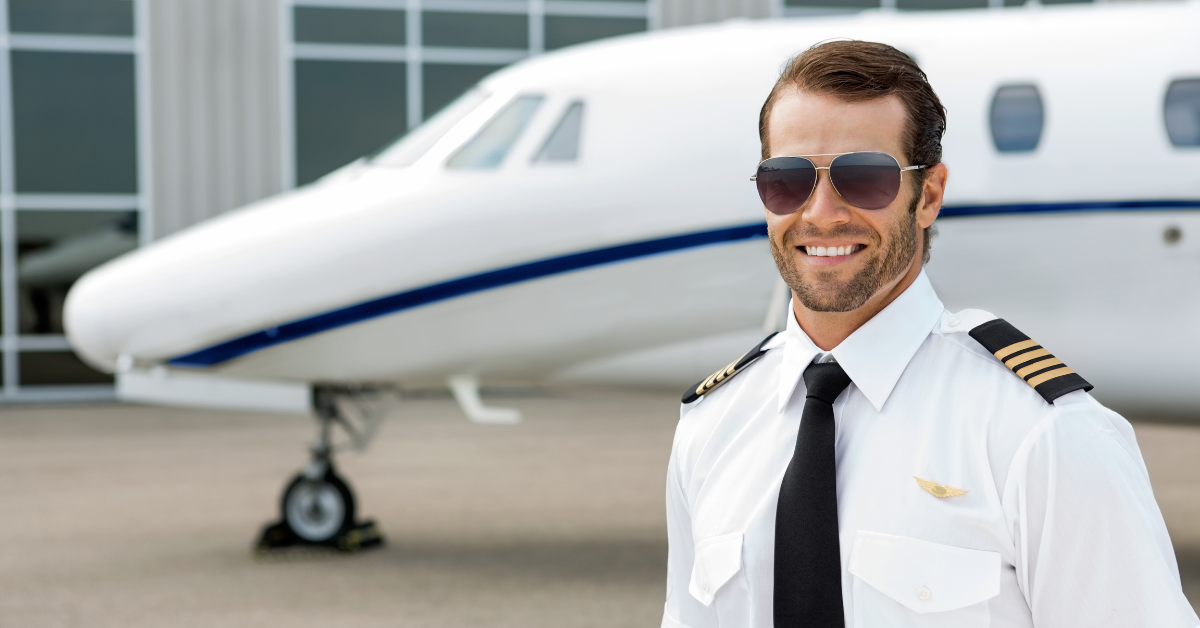The aviation industry offers opportunities for those with a passion for flying. You can explore the skies, travel to different destinations, and experience the thrill of commanding an aircraft.
However, building a successful aviation career requires more than just a love for flying. It demands dedication, hard work, and a strategic approach. This article will explore the key steps and considerations for building a solid aviation career.
Set Clear Goals

Before embarking on your aviation journey, setting clear career goals is essential. Define what type of pilot you want to become and what aviation sector you aspire to work in. Whether it’s commercial aviation, private jet operations, cargo, or even military aviation, having a specific goal will help you focus your efforts and make informed decisions.
Commercial aviation is the most popular sector, offering the potential of high salaries and a range of exciting opportunities. Nevertheless, private and military aviation can be just as rewarding.
Then, you need to acquire the necessary education and certifications. Research the requirements of the aviation authority in your country and identify the path that suits you best. Generally, this involves obtaining a private license (PPL) followed by a commercial license (CPL) and an instrument rating (IR).
Additionally, you may consider pursuing a bachelor’s degree in aviation or a related field to enhance your knowledge and stand out in the competitive job market.
From there, choose the right flight school. Selecting the right flight school is crucial for your aviation career. Look for schools with a reputable track record, experienced instructors, modern aircraft, and comprehensive training programs.
Consider factors such as cost, location, training duration, and the availability of additional ratings or endorsements you may wish to pursue later on. Visit the schools, talk to current and former students, and gather as much information as possible to make an informed decision.
Gain Flight Experience

Building flight experience is essential to your career progression. After obtaining your licenses, focus on accumulating flight hours. Many people start by working as flight instructors, which allows them to build hours and enhances their skills and knowledge.
Alternatively, you may consider flying for small charter companies, air taxi services, or participating in aerial survey or pipeline patrol operations. Any flying opportunity will contribute to your experience and make you a well-rounded aviation professional.
Also, consider pursuing advanced certifications and ratings to enhance your employability and expand your career options. For example, obtaining an Airline Transport Pilot License (ATPL) allows you to fly as a captain for commercial airlines. Ratings such as multi-engine, jet, or helicopter add versatility to your skill set.
Additionally, specialized endorsements like type ratings for specific aircraft models can make you more attractive to employers in particular aviation sectors.
Develop Soft Skills

In addition to technical proficiency, you need solid and soft skills to excel in your career. Effective communication, teamwork, problem-solving, decision-making, and leadership abilities are crucial in the cockpit. Cultivate these skills through constant self-improvement, seeking feedback from instructors and colleagues, and taking advantage of personal and professional development opportunities.
Depending on your interests and long-term goals, consider specializing or diversifying your skill set. Specializations could include becoming a flight instructor, a flight engineer, or a test pilot. Alternatively, you may diversify by gaining experience in different aircraft types or exploring opportunities in related fields such as aviation management, aviation safety, or aviation consulting. Specializing or diversifying can open doors to unique career paths and provide a competitive edge in the industry.
Stay Updated with Industry Trends and Technology

The aviation industry constantly evolves, with new technologies, regulations, and best practices emerging regularly. Stay updated with industry trends and developments through reading aviation publications, attending conferences, and engaging in continuous learning.
Familiarize yourself with advancements in avionics, navigation systems, and automation, as they are becoming increasingly prevalent in modern aircraft. Stay informed about changes in regulatory requirements, safety protocols, and industry standards to ensure compliance and maintain professionalism.
Your aviation career is a journey that requires ongoing evaluation and adjustment. Regularly assess your progress, reassess your goals, and make necessary adjustments to your career plan.
Seek feedback from mentors, instructors, and experienced pilots to identify areas for improvement and seize new opportunities. Remaining flexible and adaptable in your approach will help you navigate the ever-changing aviation landscape.
Network within the Aviation Industry
Networking is critical to unlocking opportunities in the aviation industry. Attend aviation events, join associations, and connect with industry professionals. Networking can lead to mentorship opportunities, job referrals, and valuable insights into the industry. Additionally, consider joining online forums and social media groups where aviation enthusiasts gather to exchange information and share experiences.
Embrace a Safety-Focused Mindset

Safety is paramount in aviation. Develop a safety-focused mindset and prioritize safety in every aspect of your career. Adhere to standard operating procedures, conduct thorough pre-flight inspections, and practice effective risk management. Stay vigilant and continuously assess and mitigate potential hazards. Employers highly value a strong safety record and contribute to a successful aviation career.
Also, professionalism is crucial. Maintain a clean and professional appearance in and out of the cockpit. Demonstrate reliability, punctuality, and a strong work ethic. Develop good communication skills and interact with colleagues, passengers, and ground personnel respectfully and professionally. Building a positive reputation within the aviation community can lead to valuable connections and career opportunities.
While building a solid aviation career requires dedication and hard work, it’s essential to maintain a healthy work-life balance. Flying can be physically and mentally demanding, so prioritize self-care and ensure time for rest, relaxation, and personal relationships. Balancing your professional aspirations with a fulfilling personal life will contribute to your happiness and long-term success.
Takeaway
Establishing an aviation career is a multifaceted process that combines education, experience, networking, and continuous learning. Set clear goals, invest in your education and certifications, gain flight experience, and network within the aviation community. Stay updated with industry trends and technology, develop soft skills, and maintain a safety-focused mindset.
Embrace professionalism, consider specialization or diversification, and regularly evaluate and update your career plan. With dedication, perseverance, and a passion for aviation, you can soar to new heights and build a rewarding and successful aviation career.







